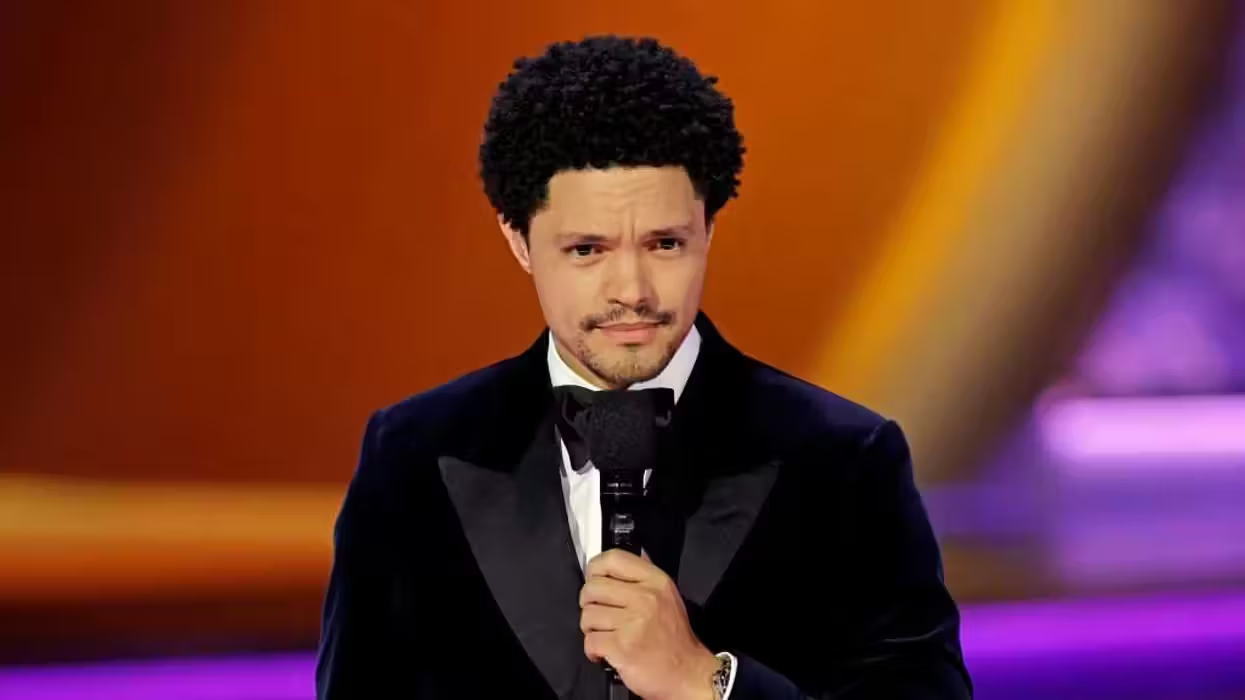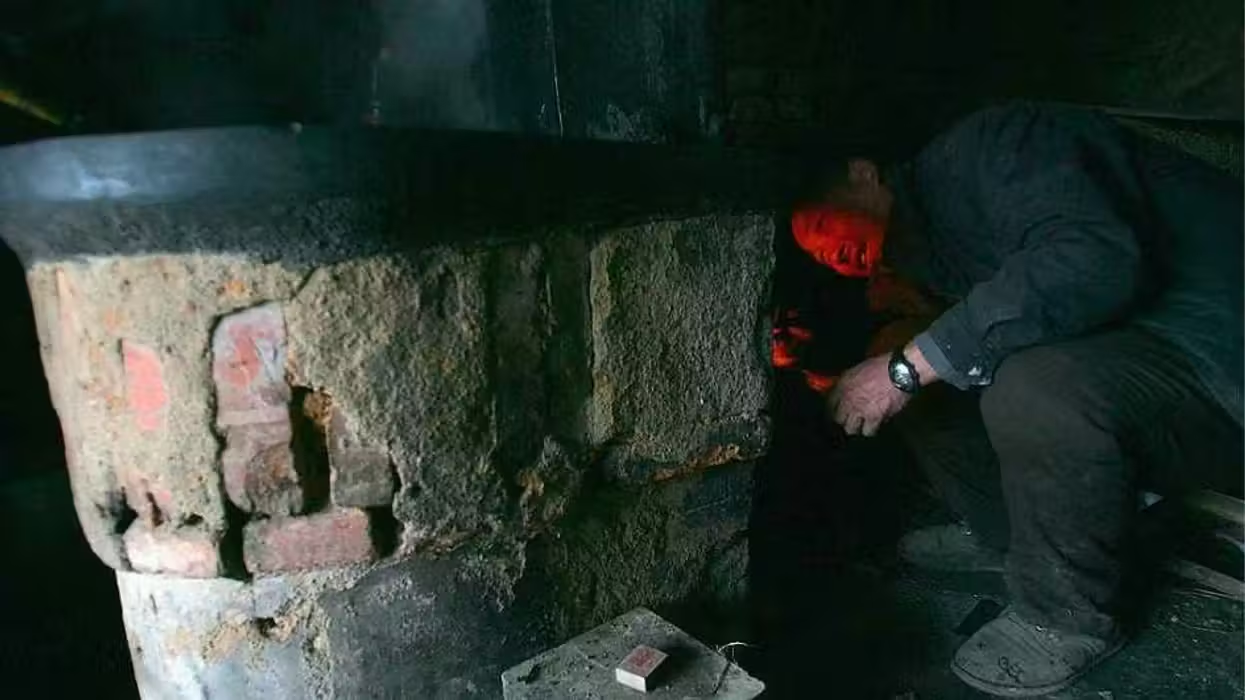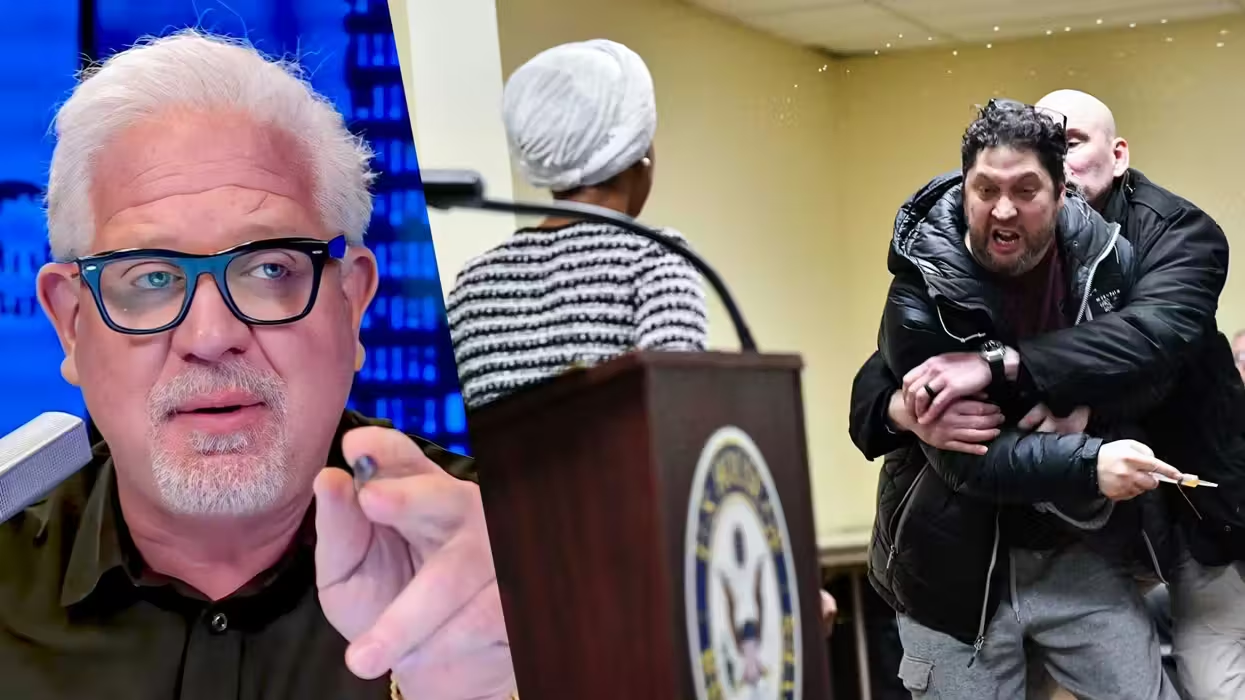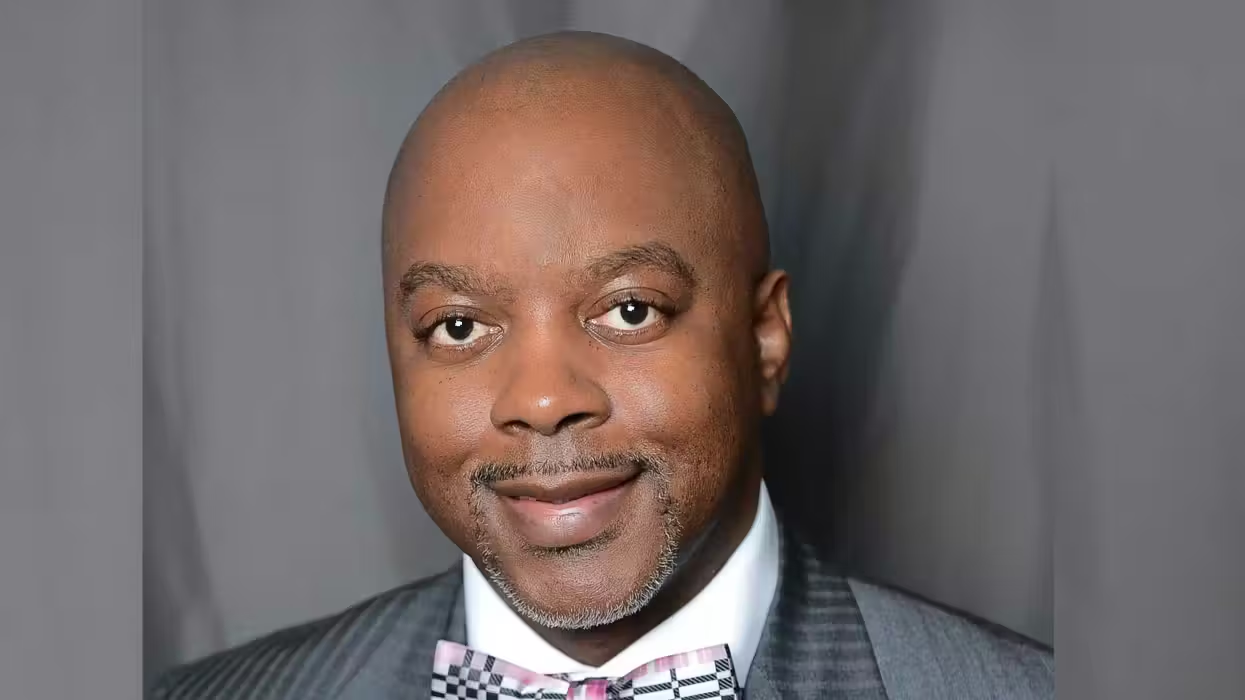To conspiracy theorists and many other skeptics of government power, the phrase "New World Order" is one of the most ominous in the English language. So naturally, when Vice President Joe Biden used the phrase in his speech to the Export-Import bank this past week, the video of his quote went viral. Cut by Nicholas Ballasy of the Daily Caller, the original two minute clip features Biden seemingly playing conspiracy theory "Bingo" with his phrasing, calling for a "New World Order" and then immediately describing how global institutions need to be strengthened, in language that sounds about as globalist as it comes.
Watch the original clip below:
But did Biden actually endorse a globalist nightmare scenario that many conspiracy theorists would warn about? Is he calling for, say, one world government, or for a secret cabal of elites to rule the world? To find out, TheBlaze watched Biden's entire speech to get a sense of the original context of his remark, and the answer may surprise you.
To begin with, though the statement does come from Biden, there is no evidence that it is simply a poor choice of words or a gaffe. Biden uses the phrase "New World Order" in the speech twice, and neither of them comes in an off-the-cuff remark. However, the context in which Biden uses the phrase changes within the speech, and it's not clear what he means by it. The first reference comes at roughly two minutes and 33 seconds into the video, when Biden uses the phrase to describe how, after World War II, "we knew that institutions and rules were needed to navigate through this New World Order." In that context, Biden is referring not to a global set of governing institutions, but rather a spontaneously emerging global state of affairs that demanded the creation of such institutions. Biden cites three such institutions in the speech shortly afterwards - namely, the World Trade Organization (WTO), the International Monetary Fund (IMF) and the General Agreement on Tariffs and Trade (GATT), though he does not identify them explicitly with the "New World Order," though given that at least one is explicitly identified with the Bretton Woods system, it probably would not take conspiracy theorists long to make that link.
With that said, this first reference seems unlikely to be a conspiracy dog whistle. Why? Because Biden references transparency in government and business as essential norms in post-war America, despite the fact that such a concept would damage a conspiracy, seeing as the very nature of conspiracies is that they are radically non-transparent. Moreover, given that he uses the phrase to describe an implicitly anarchic state of affairs prior to the creation of the institutions that conspiracy theorists frequently identify with one world government, it seems unlikely that he meant the phrase as a dog whistle in this context.
However, the first reference is not the part of the speech that went viral. That bit comes at five minutes and 25 seconds in, where Biden says:
The task we have now is to actually create a new world order. Because the global order is changing again, and the institutions that have worked so well in the post-World War II era for decades, they need to be strengthened, and some have to be changed. So we have to do what we do best, we have to lead. We have to lead. We have to update the global rules of the road. We have to do it in a way that maximize benefits for everyone, because obviously, it's overwhelmingly in our interest, this is not a zero sum game, it's overwhelmingly in our interest that China prosper, that Mongolia prosper, that nations big and large, east and west, in Latin America and in Africa, prosper, because you know that old expression, they asked Willie Sutton why he robbed banks, he said 'that's where the money is.' We want everybody to have a little money to make sure they can buy American products. So the paradox -- so we don't view, the President and I and Fred [Hochberg, President of the Export-Import Bank], we don't view economic growth as a zero sum game here, that somehow we grow and it's not in our interests if other powers grow as well. That's the paradox of this new global order. So much of our success depends on the success of those with whom we compete.
So is Biden calling for one world government in this section? A cursory reading would suggest he's hinting that direction, given that he suggests that the presumptively international institutions of the previous section need to be "strengthened." Certainly, increasing their power would be implicit in that idea. However, given the context of the rest of the speech, even this passage is less alarming than it first looks.
To begin with, Biden spends the rest of the speech not calling for global action, but specifically calling for American action, and discussing the benefits of increased international competition over resources that will accrue specifically to America. In other words, the speech is specifically internationalist in its focus, and treats the entire world as a sphere of specifically American political power. This is interventionist, but not conspiratorial, as Biden does not call for global elites or some other rarefied group to lead the way, but rather for America as a whole to lead the way.
Moreover, Biden spends a large chunk of the speech extolling the benefits of competition between countries, which would seem to be flatly at odds with a one world government approach, seeing as under a one world government, the existence of separate countries would be nullified. It should also be noted that competition would be at odds with a socialist system, which frequently is what one world government conspiracy theorists associate with such a state of affairs.
"We Americans, we welcome competition," Biden says 12 minutes into the speech, while discussing trade agreements. "It's stamped into our DNA. It's not a problem. It is not a problem. Period."
Also, whereas conspiracy theories tend to assume that those engaged in the conspiracy are interested in the creation of a complacent populace that will not think to challenge their globalist masters, Biden praises American schools for doing precisely the opposite of this.
"No matter what the school, children learn to challenge orthodoxy," Biden says of America's school system at 21 minutes and 29 seconds in. Challenging orthodoxy would almost certainly complicate the sort of brainwashing scheme that conspiracy theories assume will be necessary.
So is Biden's speech a call for a "New World Order" in the way that conspiracy theorists mean it? No. If anything, it appears to be a poor choice of words that is meant to indicate the need to adjust to a new global balance of power and set of economic conditions. Reasonable people can differ with Biden's assessment of whether such an adjustment is needed, but it is not evidence of a conspiracy. Whatever Biden means by "New World Order," it's not self-evidently dangerous.







